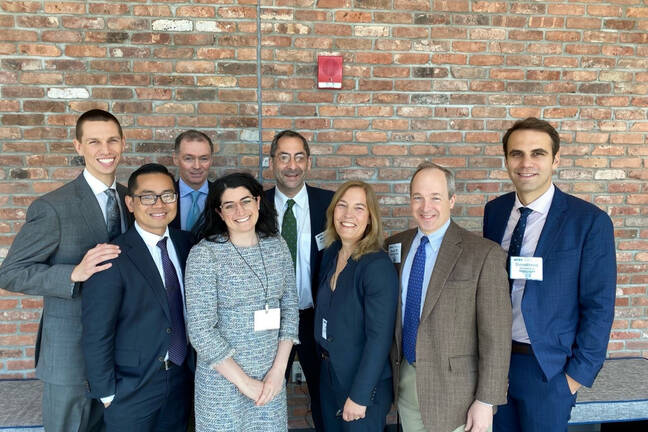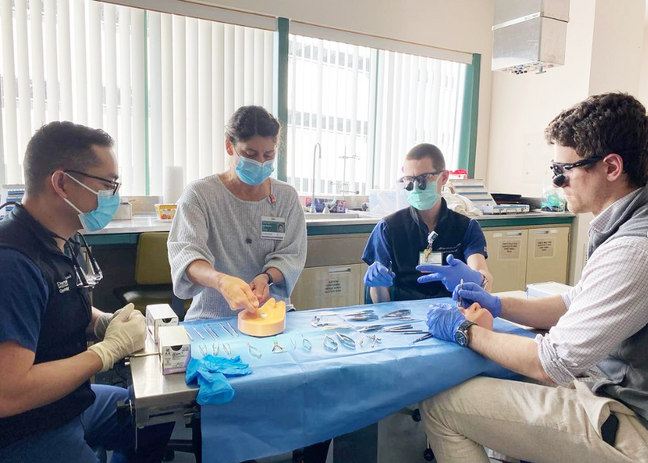PGY-1
The first year is spent building a base of patient care skills. The PGY-1 year will begin with rotations in:
- Emergency Medicine
- ENT
- Dermatology
- Neurology
- Plastic Surgery
- Surgical Oncology
- Trauma and Acute Care
- The Veterans Affairs (VA) Hospital in White River Junction, Vermont
The final 3 months are spent in Ophthalmology learning ophthalmic examination and testing skills, office procedures, and introduction to the operating room. After passing our accelerated Ophthalmic Technical Skills Training Course, residents will refine their skills in faculty subspecialty clinics, assist in the operating room, start the surgical simulator curriculum, and join faculty on call.
PGY-2
The second year is spent primarily in resident clinic and working with the faculty doctor on call for consults and emergencies. The goal is for the resident to establish a cohort of outpatients whom they will follow for all 3 years. There is close supervision of resident clinic encounters; the faculty members each supervise 1 or more sessions every week, allowing certain days of the week to take on a subspecialty flavor. Second-year residents will see pediatric patients twice a week upstairs in our pediatric eye clinic. Second-year residents will develop extensive experience in performing office laser and minor surgical procedures, and will be introduced to OR procedures. Residents will attend the pathology and optics portion of the Lancaster Course at Colby College in Waterville, Maine at the conclusion of their PGY-2 year.
PGY-3
The third year is spent in 3 four-month blocks working on faculty services learning subspecialty ophthalmology. Residents will work up patients in the faculty subspecialty referral practices and participate in the management of complex problems. As well, third-year residents will assist faculty in the OR, with increasing surgical involvement as competence increases. Third-year residents will continue to see their own patients in resident clinic 1 day per week. During this year, residents will also attend a 2-week pathology and refractive surgery rotation at Massachusetts Eye and Ear Infirmary (MEEI). This rotation also includes a proctored wet lab at the MEEI surgical simulation center. Third-year residents will attend the annual MEEI spring cataract surgery course.
PGY-4
Fourth-year residents spend alternating 3-month blocks working in the ophthalmology service at the Veterans Affairs Medical Center (VAMC) in White River Junction, Vermont, and serve as Chief Resident at Dartmouth Hitchcock Medical Center. The VAMC has a general ophthalmology service, a large portion of which is dedicated to cataract care. The goal of the resident rotation at the VAMC is to care for the veteran ophthalmology population and perform a significant volume of cataract surgery under the direct supervision of the VAMC faculty.
The fourth-year resident serves as chief of the Resident Clinic and is the primary advisor of the junior residents. The Chief Resident performs all surgery generated from resident clinic and on-call emergencies and additionally performs many hospital consultations (with faculty supervision). Finally, the Chief Resident is expected to help provide administrative and managerial support for the residency in appropriate ways, such as resident scheduling, call, and conference assignments.
Senior residents will be given time and funding to attend the American Academy of Ophthalmology conference and have time away for job or fellowship interviews.

